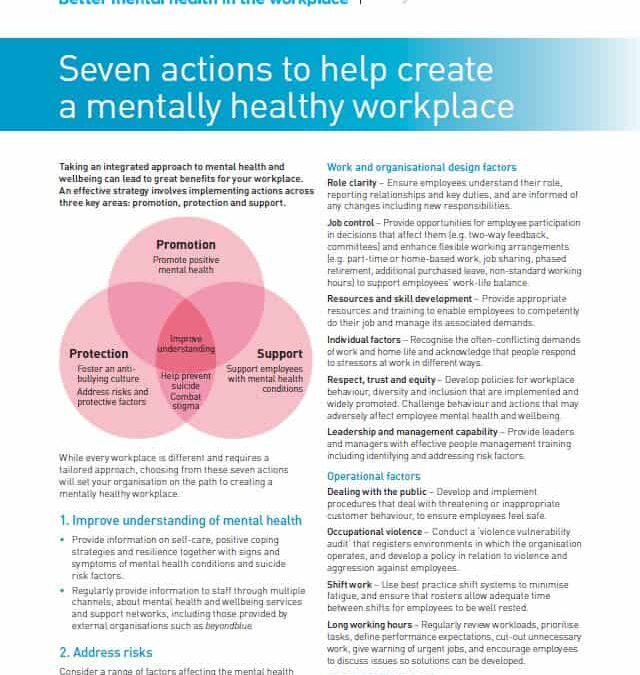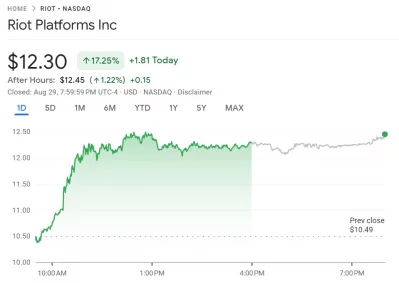Improving Workplace Productivity Through Effective Mental Health Policies

Table of Contents
The Link Between Mental Health and Workplace Productivity
The correlation between employee mental well-being and overall productivity is undeniable. When employees struggle with their mental health, the impact on the workplace is significant. This isn't simply about absenteeism; it's about presenteeism, reduced effectiveness, and a decline in overall contribution.
- Increased absenteeism and presenteeism: Mental health conditions like anxiety, depression, and stress lead to increased sick days and reduced performance while at work. Employees may be physically present but mentally checked out.
- Reduced focus, concentration, and decision-making capabilities: Mental health challenges can impair cognitive function, leading to errors, missed deadlines, and decreased efficiency.
- Higher rates of workplace accidents and errors: Distracted or stressed employees are more prone to accidents and mistakes, impacting safety and productivity.
- Decreased employee engagement and morale: A negative work environment or lack of support for mental health issues can lead to decreased motivation, job satisfaction, and overall engagement.
- Negative impact on team collaboration and communication: Mental health struggles can affect interpersonal relationships, hindering teamwork and communication within the organization.
Research consistently shows a direct link between untreated mental health conditions and decreased productivity. A study by the American Psychological Association found that workplace stress alone costs U.S. businesses over $500 billion annually in lost productivity. Addressing these issues through proactive Workplace Mental Health Policies is essential for mitigating these significant costs.
Key Components of Effective Workplace Mental Health Policies
Creating truly effective Workplace Mental Health Policies requires a multifaceted approach that addresses access to care, fosters a supportive environment, and equips managers with the necessary skills and knowledge.
Access to Mental Healthcare Resources
Providing access to mental healthcare is paramount. This includes:
- Providing Employee Assistance Programs (EAPs) with mental health benefits: EAPs offer confidential counseling and support services, often at no cost to the employee.
- Offering mental health insurance coverage: Ensuring comprehensive coverage for mental health services removes a significant barrier to seeking help.
- Partnering with mental health professionals for workshops and on-site services: Offering convenient and accessible mental health services on-site or through virtual platforms can encourage employees to seek help.
- Creating a directory of mental health resources for employees: Providing a readily available list of mental health professionals, support groups, and other relevant resources empowers employees to take control of their well-being.
Creating a Supportive and Inclusive Work Environment
A supportive work environment is crucial for encouraging employees to seek help and manage their mental health effectively. This involves:
- Promoting open communication and reducing stigma around mental health: Openly discussing mental health and creating a culture of empathy normalizes seeking help and reduces the stigma associated with mental health issues.
- Implementing anti-discrimination and harassment policies that include mental health: Protecting employees from discrimination or harassment based on their mental health status is essential for creating a safe and inclusive workplace.
- Offering flexible work arrangements to support employee well-being: Offering flexible hours, remote work options, or compressed workweeks can help employees manage their workload and personal responsibilities more effectively.
- Encouraging work-life balance through reasonable workload management: Avoiding excessive workloads and promoting a healthy work-life balance are crucial for preventing burnout and promoting employee well-being.
- Creating a culture of empathy and support amongst colleagues: Promoting a culture of support where colleagues feel comfortable checking in on one another and offering support can create a more positive and inclusive work environment.
Manager Training and Education
Managers play a vital role in supporting employee well-being. Providing training equips them to effectively address mental health concerns:
- Equipping managers with the skills to identify signs of mental health struggles in employees: Managers should be trained to recognize the signs and symptoms of mental health conditions in their employees.
- Training managers on how to support employees experiencing mental health challenges: Managers need to be trained on how to offer support, provide resources, and facilitate access to professional help.
- Educating managers on creating inclusive and supportive teams: Training should focus on creating a work environment where employees feel comfortable discussing their mental health and seeking support.
- Providing resources for managers to understand and address mental health concerns effectively: Managers should be given access to resources and tools to help them understand and effectively address mental health concerns within their teams.
Measuring the Success of Workplace Mental Health Policies
Measuring the effectiveness of your Workplace Mental Health Policies is crucial for continuous improvement. This involves:
- Track key metrics: Monitor absenteeism rates, employee satisfaction surveys, employee engagement scores, and rates of workplace accidents to assess the impact of implemented policies.
- Conduct regular employee feedback sessions: Gather insights directly from employees to understand their experiences and identify areas for improvement.
- Analyze data to identify areas for improvement and adjust policies accordingly: Regularly review the data collected to identify trends, challenges, and opportunities for improvement.
- Implement anonymous surveys: Ensure honest feedback and protect employee confidentiality by using anonymous survey methods.
Using a variety of data collection methods, including quantitative (e.g., absenteeism rates) and qualitative (e.g., employee feedback), offers a comprehensive understanding of the program’s success and areas needing refinement. Confidentiality and privacy must be paramount in all data collection and analysis practices.
Conclusion
Implementing comprehensive Workplace Mental Health Policies is not merely a matter of social responsibility; it's a strategic imperative. By providing access to mental healthcare resources, fostering a supportive and inclusive work environment, and equipping managers with the necessary skills, organizations can significantly improve employee well-being and boost productivity. Effective employee wellness programs, mental health initiatives, and wellbeing strategies are key to cultivating a thriving workplace. The data shows a clear link between positive mental health and increased workplace efficiency. Prioritize the implementation of robust Workplace Mental Health Policies – it's an investment in your employees and the future success of your organization. For further information on developing effective mental health strategies, explore resources from the [insert relevant organization or website here]. Don't delay; start building a healthier, more productive workplace today with effective Workplace Mental Health Policies.

Featured Posts
-
 Whats Driving The Recent Volatility In Riot Platforms Riot Stock
May 03, 2025
Whats Driving The Recent Volatility In Riot Platforms Riot Stock
May 03, 2025 -
 Effective Strategies For Mental Health Literacy Education
May 03, 2025
Effective Strategies For Mental Health Literacy Education
May 03, 2025 -
 Sony Opens Play Station Beta Sign Up Now And Participate
May 03, 2025
Sony Opens Play Station Beta Sign Up Now And Participate
May 03, 2025 -
 From Scatological Documents To Podcast Gold An Ai Driven Approach
May 03, 2025
From Scatological Documents To Podcast Gold An Ai Driven Approach
May 03, 2025 -
 Rupert Lowe Under Investigation Reform Uk Responds To Bullying Complaints
May 03, 2025
Rupert Lowe Under Investigation Reform Uk Responds To Bullying Complaints
May 03, 2025
